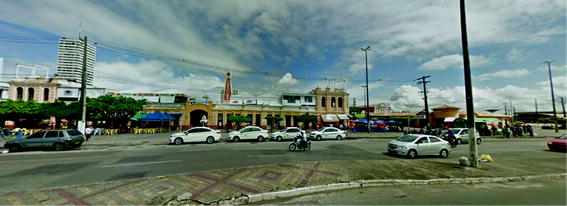
The President of the Republic, Carlos Alvarado met this past Thursday with representatives of local governments to address their concerns about the sanitary measures imposed in the face of the COVID-19 Pandemic.
As representatives of the Local Governments were: Leonardo Chacón, Mayor of Dota (ANAI); Luis Fernando León, Mayor of Turrialba (ANAI); Johnny Araya, Mayor of San José (UNLG); Lissette Fernández, Mayor of Jiménez (UNLG); Karen Porras, executive director of the National Union of Local Governments and Nixon Ureña, mayor of San Ramón.
The meeting was also attended by the Executive President of the Institute for Municipal Development and Advice (IFAM), Marcela Guerrero, and the Executive President of the National Emergency Commission (CNE), Alexánder Solís.
“I feel confident in the resilient actions that as a country, we are developing to face one of the greatest challenges of the century,” said the President. Through a virtual connection, a member of the Situation Analysis Room made a detailed presentation of the technical-sanitary criteria that support the measures.
Also, an update of the situation was carried out at the national level, informing confirmed cases, hospitalized patients (inwards and ICUs), and the statistical impact of the measures regarding outbreak mitigation.

The Situation Analysis Room was authorized by the CNE (Risk Prevention Coordination) to generate scenarios and technical forecasts that serve as input for decision-makers in the Emergency Operations Center (COE). The ministries of Health, Planning and Economic Policy, Economy, Industry, and Commerce, Science and Technology, as well as the Costa Rican Social Security Fund, IMAS, ICE, and the Pan American Health Organization also participate in it. Permanent coordination is maintained from this room with the Municipal Emergency Committees.
The Mayors expressed concern about the negative impacts of the Pandemic in social, economic, and political areas, including social effervescence. They indicated the need for safe opening instructions, a better flow of information and communication, as well as more participation in local health actions such as the operation of commercial establishments and vehicle restriction. They also expressed their willingness to seek joint solutions.
Main agreements of the meeting:
1. Unification of the sanitary vehicle circulation restrictions in conditions that will be announced in due course.
2. Authorization to open certain businesses with municipal regulations during closing periods, after evaluating risk models. They must also have authorization from the Ministry of Health and with the commitment of the relevant productive sector.
3. Participation in an integration and coordination table between representatives of the Local Governments and the CNE’s Situation Analysis Room.
4. Advance notice of at least 24 hours on the implementation of health alerts in their respective cantons.
5. The commitment of Local Governments to help with health surveillance and protocol attention.
6. Transfer of funds from Law 8114 and 9329 to the corresponding tracts for use by the municipalities.
Marcela Guerrero, IFAM executive president pointed out that “today the Municipal Regime through the UNGL (National Union of Local Governments) and the ANAI (National Association of Municipalities) have established a series of steps and agreements so that the cantons can have degrees of certainty in terms of the information regarding contagion and the national goal which is to avoid deaths”. For his part, Alexánder Solís, executive president of the National Emergency Commission stressed that “we addressed technical aspects to implement possible differentiated management in the territories and that allows us through a municipal commitment and a municipal risk management plan for COVID-19, that some controlled activities can be opened based on risk assessments, superimposing this on the alert maps and syndromic alerts that make up the early warning process”.


